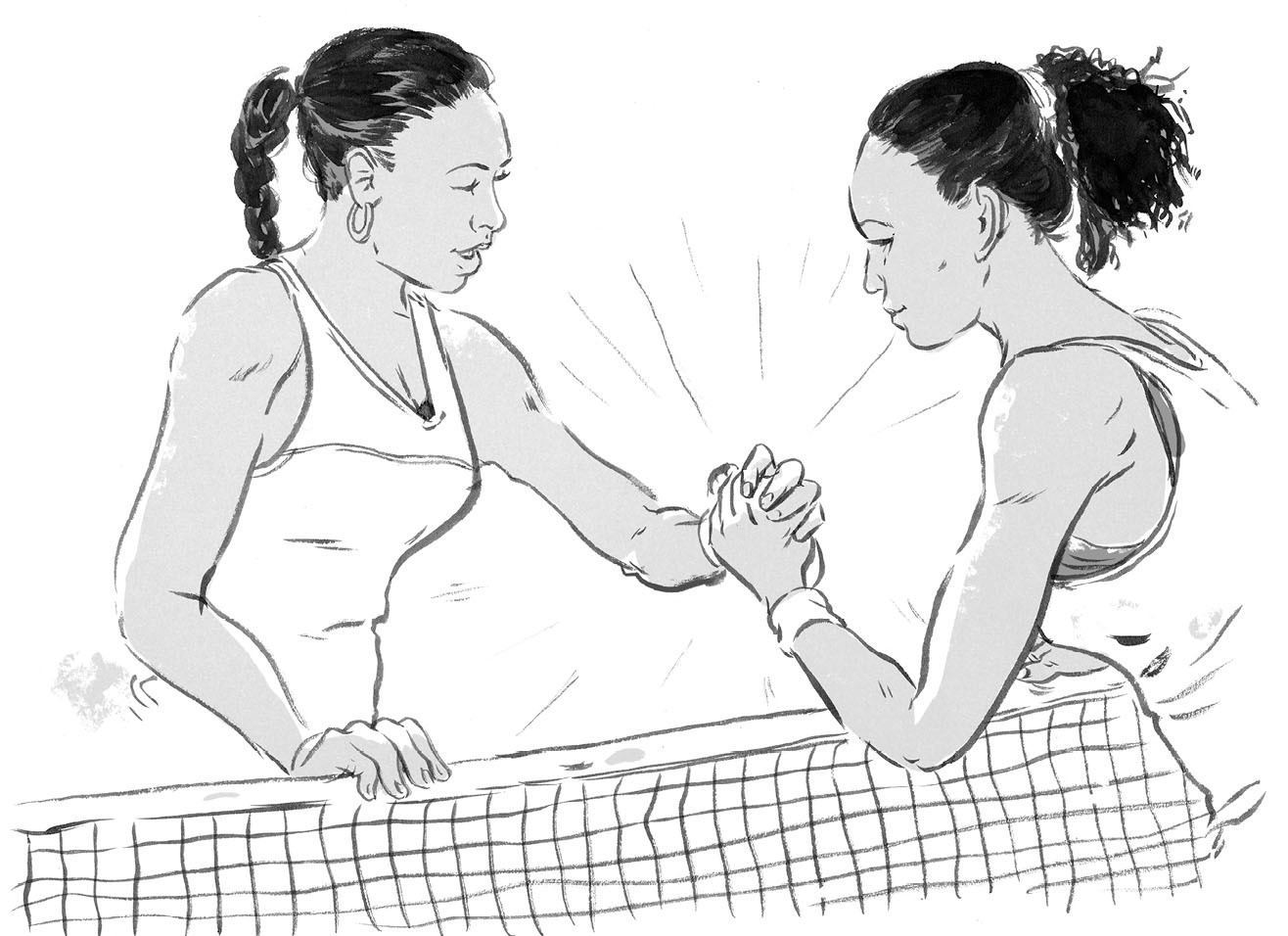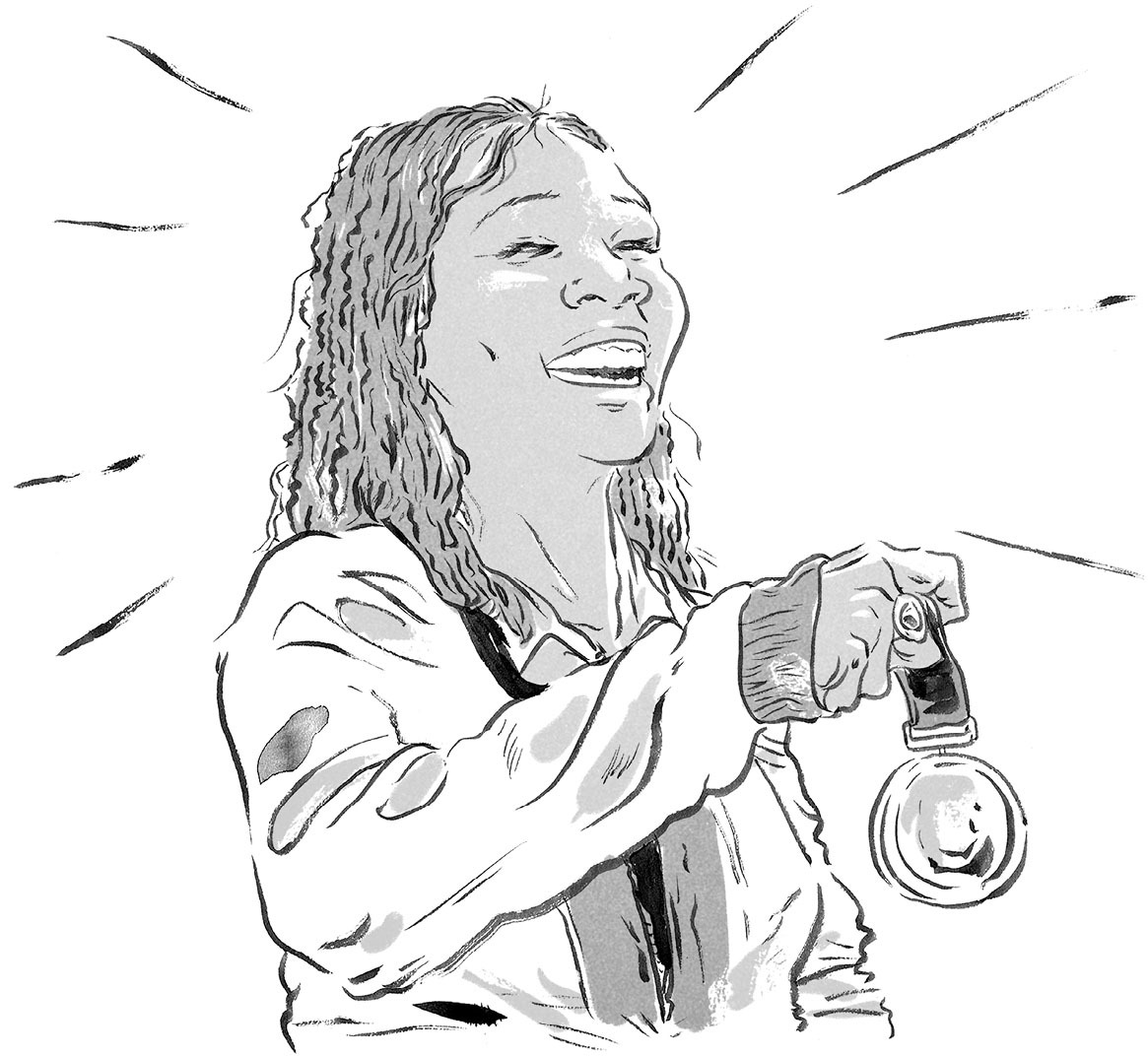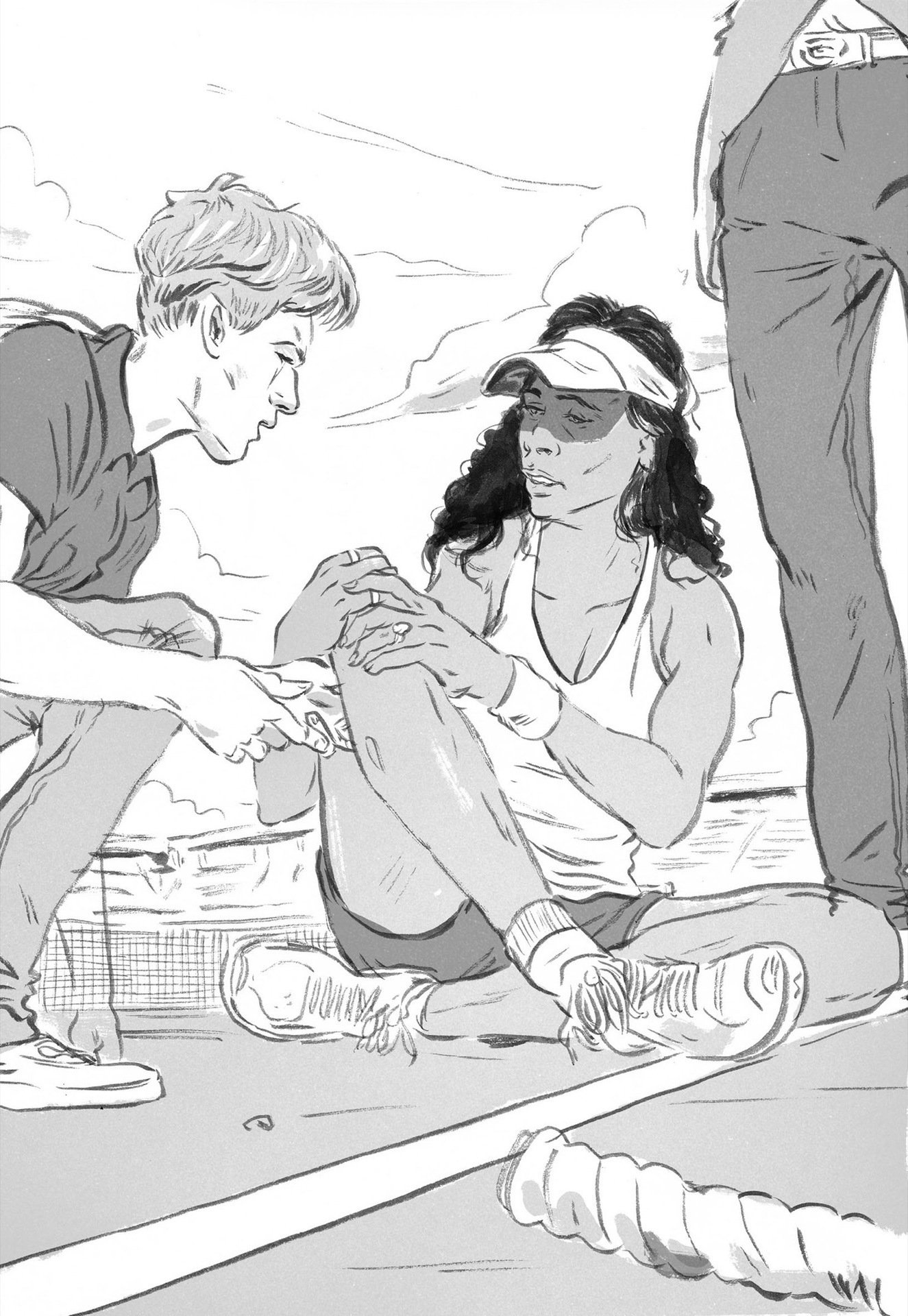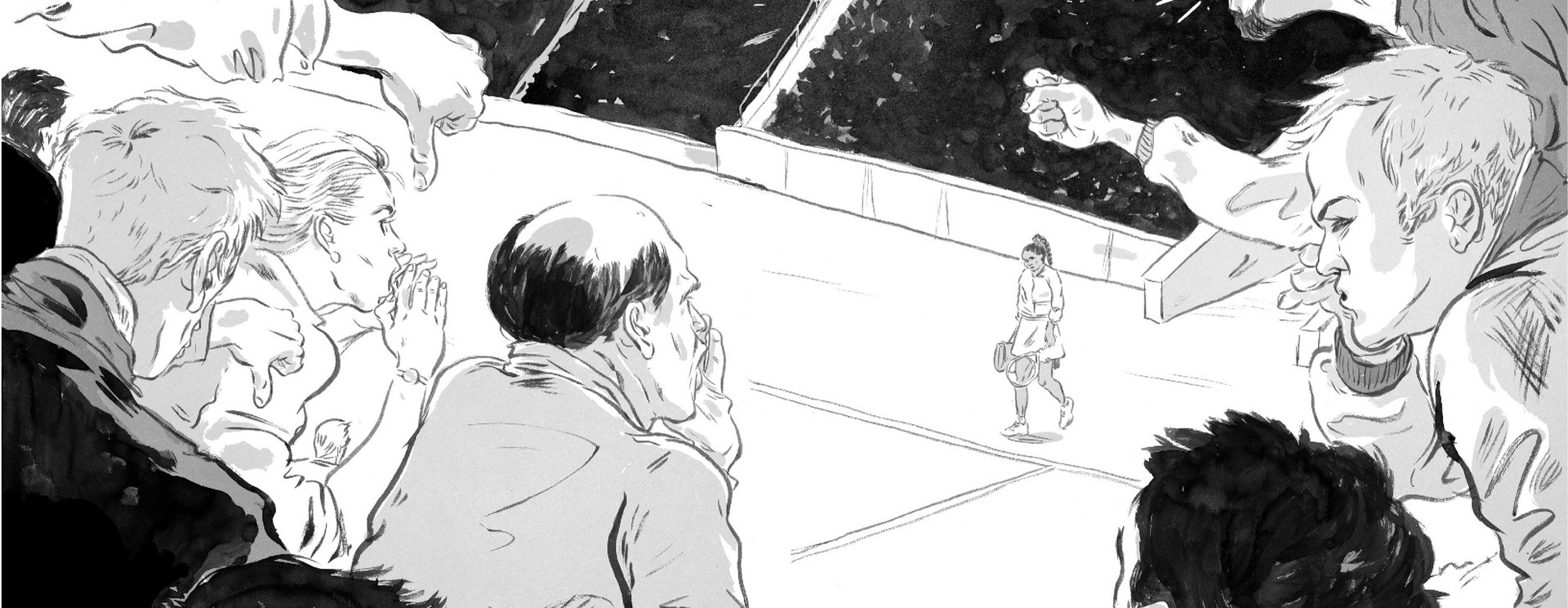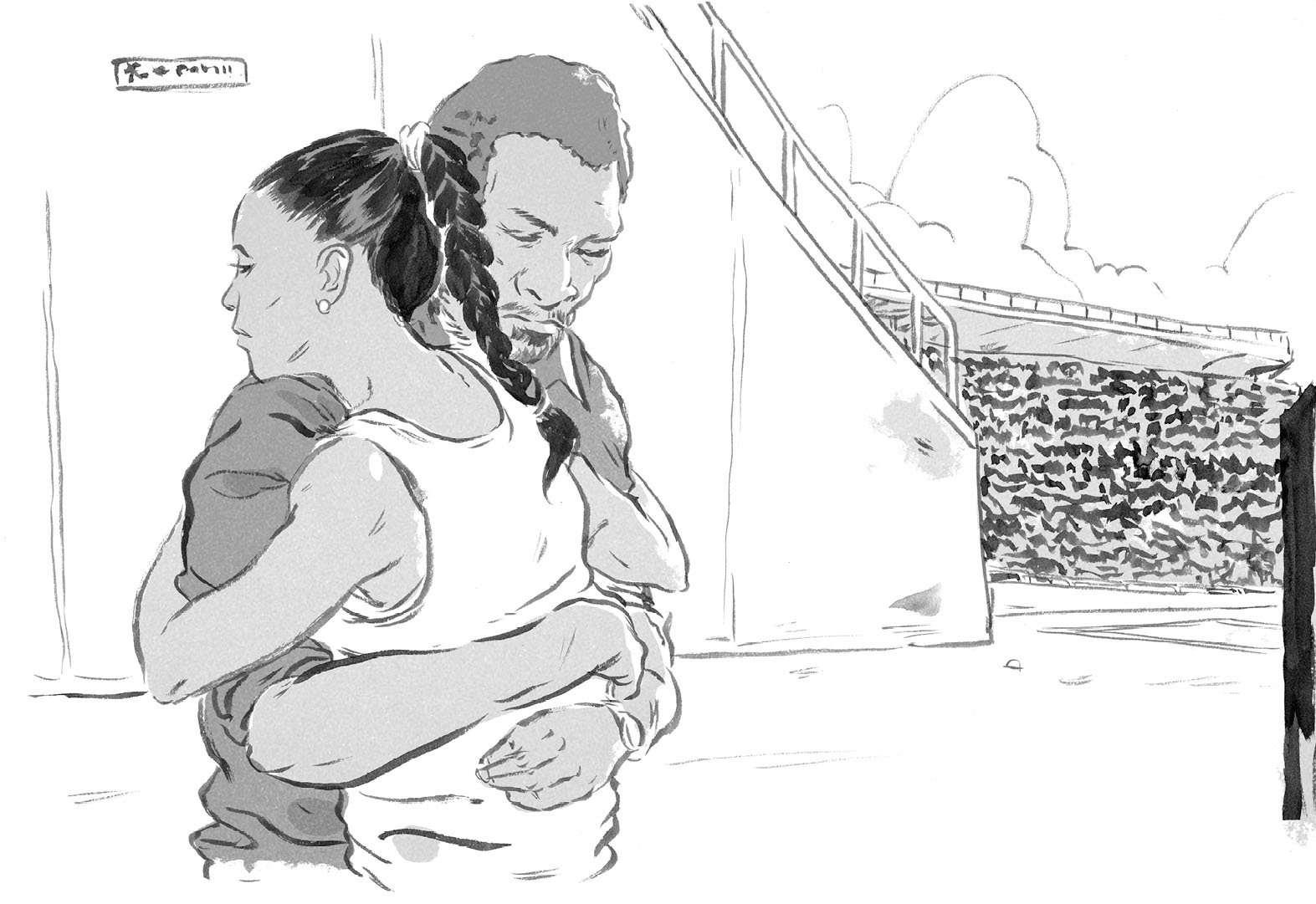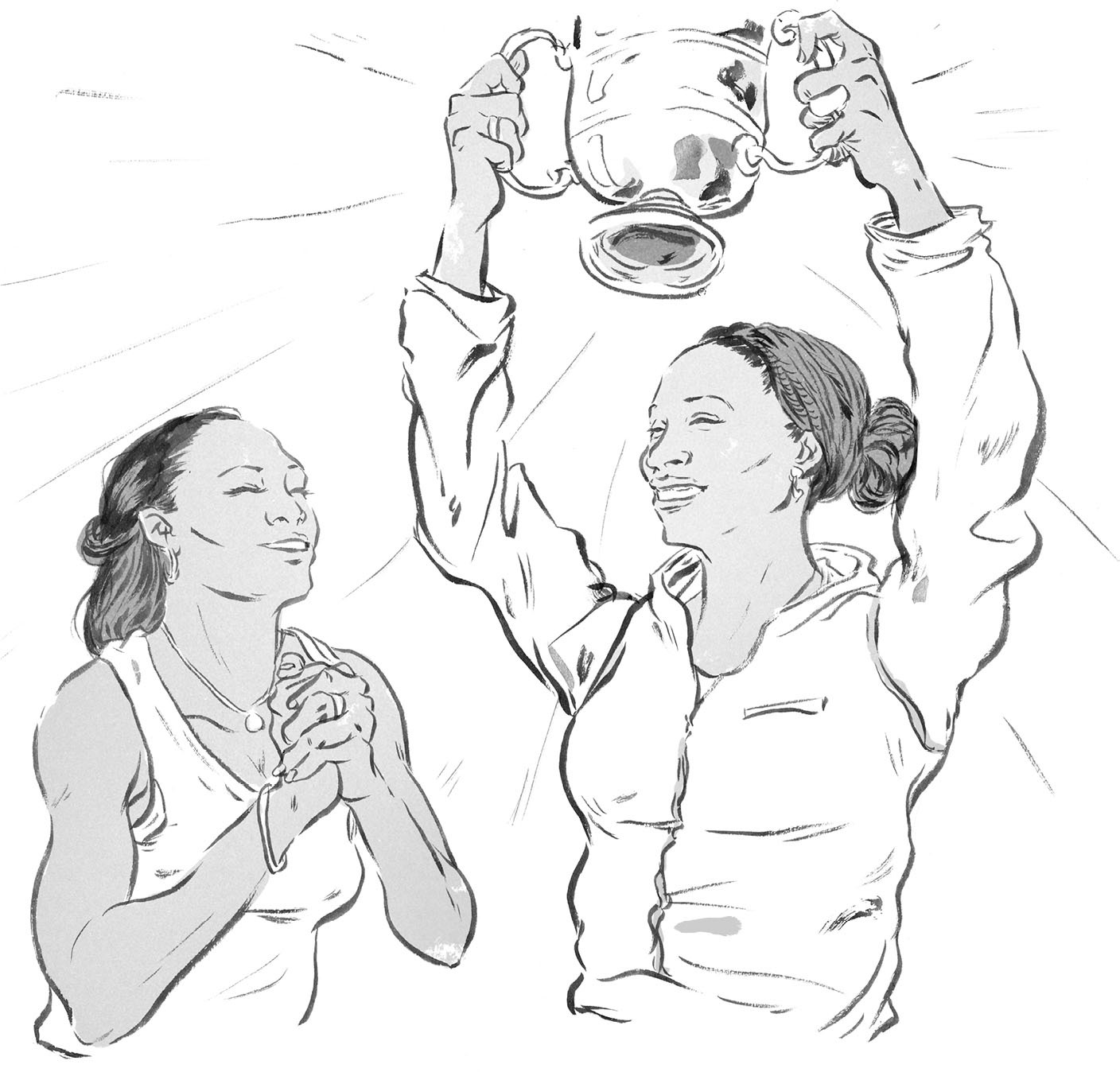CHAPTER 5
Tennis Ups and Downs
The Williams sisters’ rivalry continued in 2000. At Wimbledon, the Grand Slam event in England, they faced each other in the semifinals. Venus won that match and went on to win the tournament, becoming the first African American to be Wimbledon champion since Arthur Ashe in 1975. Venus and Serena combined to win the women’s double title as well.
The sisters represented the United States in doubles at the 2000 Summer Olympic Games in Sydney, Australia, in September. Venus and Serena defeated a team from the Netherlands in the final and won the gold medal. Venus also competed in singles and won another gold medal!
Back on tour, the sisters combined to win the doubles title at the 2001 Australian Open.
That meant the pair had completed a career Grand Slam in doubles. They were the first sisters ever to do that.
As the Williams sisters won match after match, it seemed like people were paying less and less attention to the color of their skin, and just admiring their tennis skills and their celebrity status.
In 2001, however, a sad event brought up racial issues once again. At a tournament in Indian Wells, California, Venus suffered a knee injury and heat exhaustion. She told tournament doctors that she would not be able to play her match against Serena. Many people had come to see the sisters play, but they were not told by officials that Venus could not play until about five minutes before the match. The fans became very upset and booed loudly. Some accused Venus of faking her injury so that Serena would make the final. But Venus really was
injured.
The next day was much worse. As Serena walked onto the court for the final match, the fans, still angry, began booing again. Soon, it was more than boos. People called her terrible names and some shouted, “Go back to Compton!” Richard got angry at the fans, and that made them boo and shout even more.
Throughout the match, the fans rooted against Serena because they were mad at Venus for pulling out of the earlier match. Serena later wrote in her autobiography, “All I could see was a sea of rich people—mostly older, mostly white . . . standing and booing . . . It’s tough to ignore fourteen thousand screaming people— especially when they’re screaming at you.”
It was shocking. But Serena somehow fought through the noise and anger and won the match and the tournament. She was crying as she left the court.
“As a family we were all hurt,” said her older sister Isha. “It stayed with us a long time.”
In fact, the Williams sisters said they would never play in the Indian Wells tournament again, even though it might hurt their careers to avoid it.
The news was good in other places, however. Later that year, the sisters met in the final match of the 2001 US Open. They were the first sisters to accomplish that in a Grand Slam event since 1884! The match was shown on prime-time television—a first for a Grand Slam women’s tennis final—and 22.7 million people watched as Venus beat Serena.
The dream that had begun on beat-up courts in Compton had come true. The Williams sisters—only twenty-one and twenty years old—were international stars. Even though they had accomplished quite a lot, they felt that they were still just getting started.
